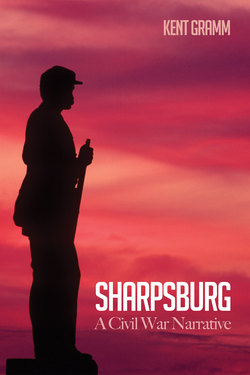Читать книгу Sharpsburg - Kent Gramm - Страница 8
На сайте Литреса книга снята с продажи.
Army of the Potomac, United States
ОглавлениеThe Army of the Free
The free are not free, only think they are—
but that makes all the difference in the world.
A soldier does exactly what he’s told,
more or less—such is life, and such is war:
nothing comes without its opposite.
To save your freedoms you become not free:
you fight for peace, and kill your enemies.
To save his life, the poet sits and writes,
renouncing everything for poetry.
And they went in and died to save their rights.
The poet calls on God to help him out—
I do so here—surrendering his mind,
though not his heart, and giving all to doubt.
The soldier writes his fortunes on the wind
and marches down a road of circumstance,
his every step a metrical decline
from that unchosen, free Nothing whence
he came. He is a child of God and chance
begotten in a short, shocking romance.
He lives only to hold that shaky line.
*
We saw the President in Washington
a few days after we had lost Bull Run
again—Old Abe the railsplitter, shirt-sleeved,
tilting awkward-tall as a whooping crane
over four soldiers on the White House lawn.
His lined face showed both cheerfulness and grief.
Wounded boys lay everywhere. He had come
out carrying a pail of lemonade
and got to talking. He was a good man.
You wanted to say, “We’ll do all we can,
Old Abe. We’ll settle up with them at the next
dance.” We knew the Rebs had crossed the Potomac
and filled the roads of central Maryland.
But it would be all right. Our Little Mac
would stir the Army back in shape and deal
with Bobby Lee at the right time. Our man,
McClellan was, like none after. To feel
devoted to a general makes an army—
the saucy graybacks had it; so did we.
You needed more than uniforms and steel
to win battles, and Mister Lincoln’s army,
the Army of the Potomac, would stay
the course until the gentlemen in gray,
who put their rights and so-called “property”
ahead of Old Glory and posterity,
would yield to justice and to law. Today
the Army rests, tomorrow binds its wounds,
and on the third day rises, shouldering
its knapsacks and its muskets to the sound
of its own bugles, and our men will sing
“John Brown’s Body” and “Rally Round the Flag,”
and we will meet them now on our own dear
Northern soil. We stepped with little straggling
in our brigade this time, and somewhere near
Frederick the pace picked up as if some charge
of lightning had been fed to headquarters.
You could sense sterner purpose in the march.
Some Indiana boys had found Lee’s orders
and now Little Mac and our generals knew
the Rebs had split. Now we knew what to do.
South Mountain
On the fourteenth we marched to South Mountain
from our camp near Frederick. The day was warm
and many of the boys just shed their twenty
extra cartridges. Carry sixty pounds
of knapsack, rations, steel—and there’s more harm
in too much weight than waste. Forty’s plenty.
Your piece would foul before you’d get past forty.
The Rebels bragged about how light they marched,
and so they did. And how, their blacks could tell.
We hoisted ours and carried it ourselves.
The Black Hat brigade drew the hardest task—
up Turner’s Gap astride the National Road.
It’s nothing but a steep ravine: trees, rocks,
and Rebels with that hatred in their souls
for Yanks that only Southerners can nurse—
two lines of them looking down at you behind
their muskets’ sights, smiling. A fifty-eight
calibre ball would knock you on your arse,
shatter bones, remove your face, or if fate
were kind, kill you. Such is the force of hate.
Our Little Mac was watching two miles back.
At first our rifles shone golden—the sun
a mass of yellow fire as we attacked
their skirmishers on green and level ground;
then silver, as we ascended the shadowed
slope in sudden twilight—our lines did slow
but did not stop; now bronze, lit by discharges
veiled in drifting gray: marching to Zion,
marching to Zion, something drove us hard.
McClellan said, “They must be made of iron.”
So we were named the Iron Brigade. That night
we stayed on the slope of South Mountain, not
quite at the top but close enough, not licked
and not going back down, slept with our heads
behind stones and trees and those who were shot.
In the morning the graybacks had gone, quick
as rabbits in the night. The way was open.
The Army of the Potomac poured through. One division
removed their caps, saluting us. We took it in our stride,
and left our friends dead on the mountainside.
